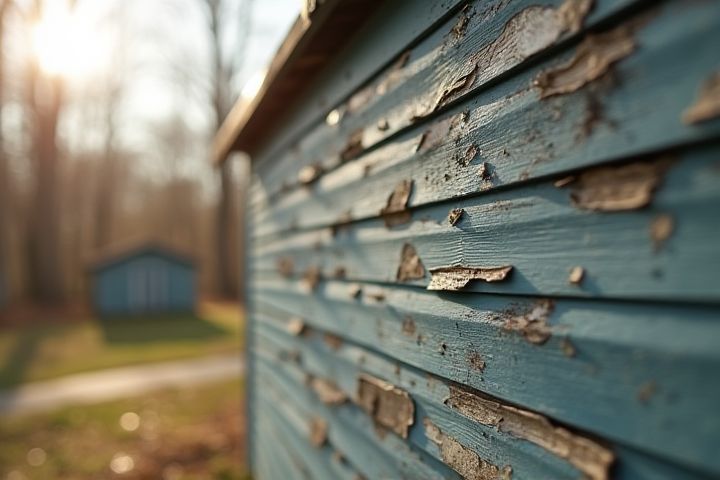
House flipping can be risky due to market volatility, where property values can fluctuate dramatically, impacting your potential profit margins. Renovation costs often exceed initial budgets, leading to unexpected financial strain that can erode your return on investment. Time constraints are another significant factor; prolonged renovations can cause you to hold onto the property longer than anticipated, increasing carrying costs such as taxes and insurance. You may also face challenges in accurately assessing property values, which can lead to poor purchasing decisions and ultimately, significant losses. Local regulations and permitting processes can further complicate flipping, adding time and costs that can affect your project's feasibility.
Why House Flipping Can Be Risky
Market Volatility
Market volatility is a fundamental risk factor in house flipping, as property values can fluctuate significantly in response to economic conditions, interest rates, and local market dynamics. When you purchase a fixer-upper with the intention to resell quickly, you may encounter unexpected downturns that affect demand and pricing. For instance, during periods of economic uncertainty, potential buyers may be more hesitant, leading to longer holding periods and reduced profit margins. Understanding the local real estate trends and having a contingency plan is essential to mitigate losses stemming from these unpredictable market changes.
Unexpected Renovation Costs
Flipping houses often involves underestimating renovation costs, which can significantly impact your profit margins. Hidden issues such as outdated plumbing, electrical problems, or structural damage can emerge during renovations, leading to unexpected expenses. You may also face cost overruns due to fluctuating material prices and labor shortages, further straining your budget. Properly budgeting for contingencies is crucial to mitigate the risks associated with unforeseen renovation challenges in house flipping.
Financing Challenges
House flipping often involves significant financial investment and can lead to unforeseen losses due to financing challenges. High-interest rates or fluctuating mortgage rates can severely impact your overall budget, reducing your profit margin or leading to losses. Additionally, reliance on short-term loans may result in increased pressure to sell quickly, causing hasty renovations and potential overspending. You should also be wary of unexpected repairs or property devaluations, as these factors can further strain your financial resources.
Carrying Costs Accumulation
House flipping can lead to significant financial strain due to the accumulation of carrying costs, which are the ongoing expenses incurred while owning a property. These costs typically include mortgage payments, property taxes, insurance, and utility bills, which can quickly escalate. For example, if a property takes longer than anticipated to renovate and sell, you could accumulate thousands of dollars in these expenses each month, eroding your potential profit margin. You must carefully evaluate the timeline and budget for renovations to minimize this risk and ensure that your investment remains financially viable.
Overvaluation Risks
House flipping can lead to significant financial losses due to overvaluation risks. When the market value of a property is overestimated, potential profits diminish, resulting in costly mistakes for investors. In 2023, the average flipper made a profit of $62,000; however, overestimating renovation costs or property appreciation can erase this margin quickly. Careful market analysis and realistic pricing are essential to mitigate these risks and ensure a successful flip.
Time Constraints
House flipping involves tight deadlines that can lead to rushed decisions, increasing the potential for costly mistakes. The pressure to complete renovations within a limited timeframe may compromise quality, resulting in subpar work that fails to attract buyers. You may also face unexpected delays, such as issues with permits, labor shortages, or supply chain disruptions, which can further extend your timeline. This race against time often shifts focus away from thorough market analysis and property evaluations, leading to significant financial risks.
Regulatory Changes
House flipping can be risky due to frequent regulatory changes that can directly impact profitability. In 2022 alone, nearly 12% of homes flipped experienced significant delays or increased costs due to new zoning laws and permit requirements. These regulations can vary widely by location, with some cities imposing stricter standards for renovations, thereby complicating your project's timeline. Staying up-to-date on local ordinances is crucial, as non-compliance can lead to costly fines and project halts, undermining your investment.
Demand Fluctuations
Demand fluctuations significantly impact profitability in house flipping, as real estate markets can shift unexpectedly. When demand declines, properties may sit on the market longer, increasing holding costs such as mortgage payments, taxes, and maintenance. Investors may face lower resale values, which can lead to financial losses rather than anticipated gains. Understanding local market trends and consumer preferences is crucial for mitigating these risks and making informed decisions.
Limited Profit Margins
House flipping often presents limited profit margins, making it a precarious investment strategy. The average profit for flippers in the U.S. was around $62,000 in 2022, but costs such as renovations, holding expenses, and market fluctuations can quickly erode gains. According to a report from ATTOM Data Solutions, nearly 53% of house flips resulted in losses in certain markets, illustrating the volatility involved. When entering this endeavor, you must consider the potential for unexpected expenses that can diminish your profit significantly, emphasizing the importance of thorough market research and budgeting.
Skill and Experience Deficiency
House flipping carries significant risks due to the potential deficiencies in skill and experience. Many first-time flippers underestimate the complexities of property renovation, which can lead to costly mistakes and budget overruns, often exceeding 20% of projected costs. Lack of knowledge in real estate market trends can result in poor investment decisions, drastically affecting profit margins that typically aim for 10-20% returns. Without essential skills or professional networks, you may struggle to navigate legal requirements or secure reliable contractors, making the entire flipping process both daunting and financially perilous.
